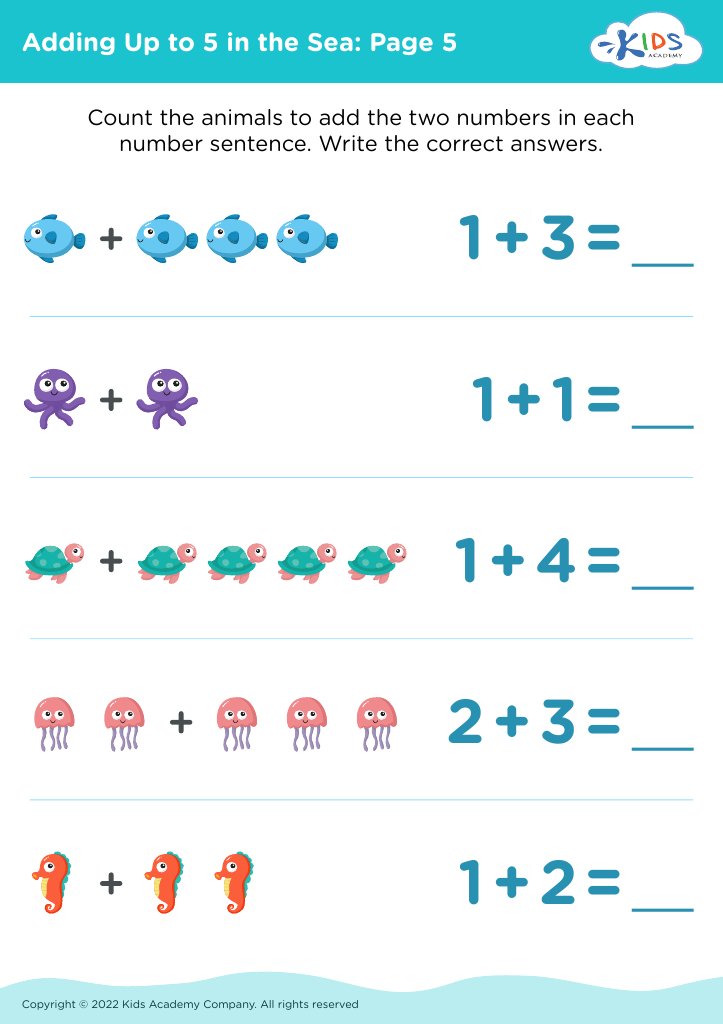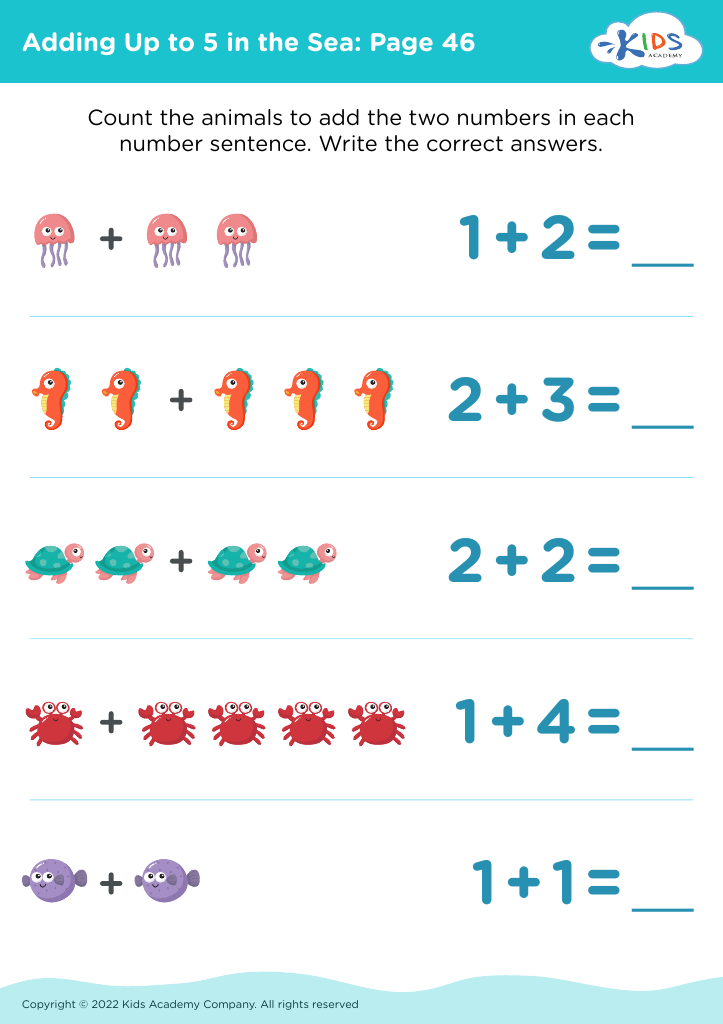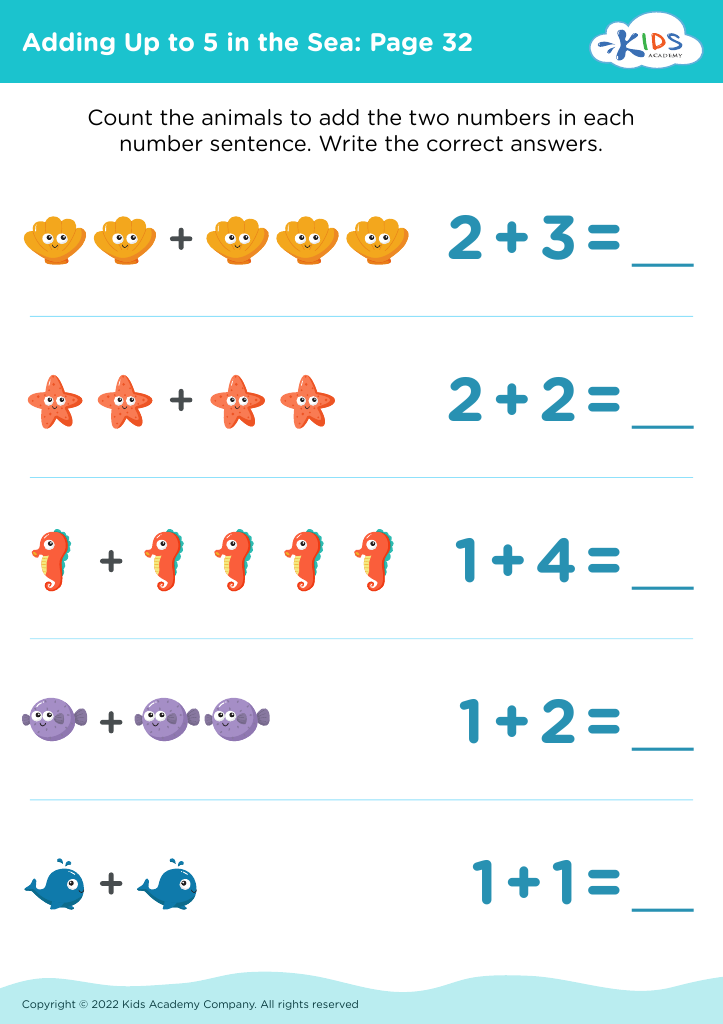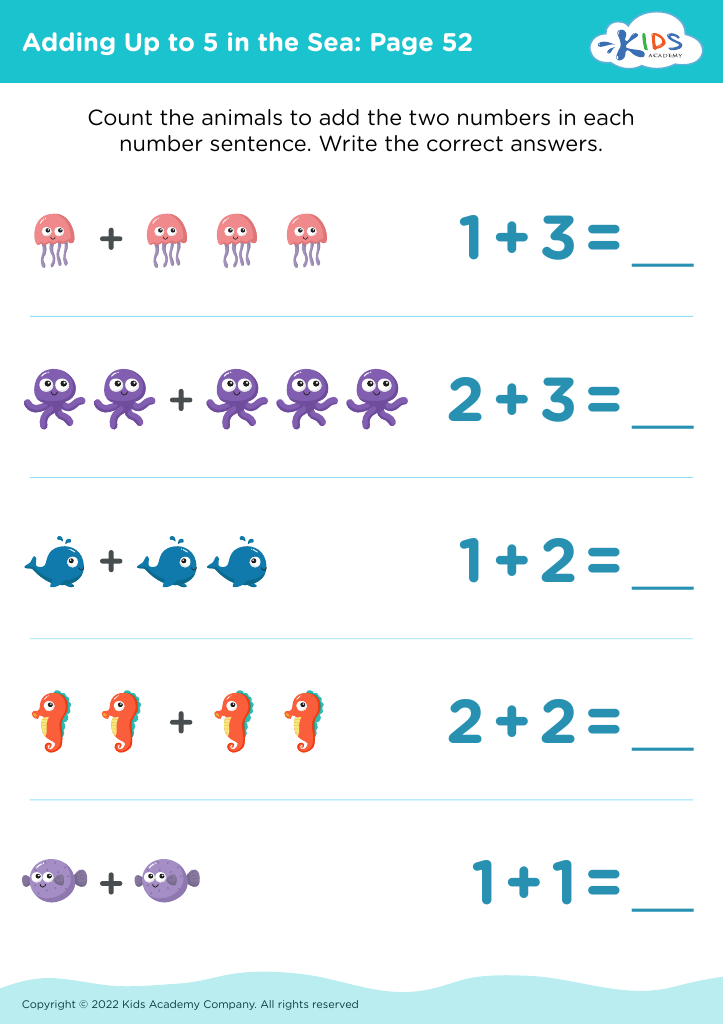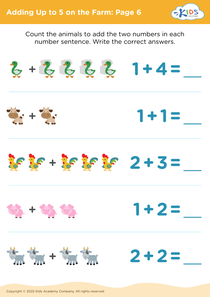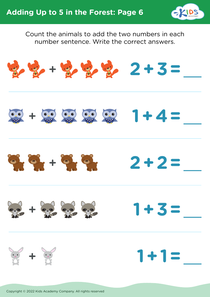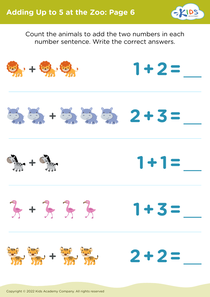Fine motor skills (writing numbers) Adding in the Sea Worksheets for Ages 3-4
4 filtered results
-
From - To
Introducing our “Adding in the Sea” worksheets designed specifically for ages 3-4! These engaging printables focus on developing fine motor skills through writing numbers. Dive under the sea with delightful aquatic illustrations and exercises that make number writing fun. Perfect for little learners, these activities combine math practice with skills essential for handwriting. Children will trace and write numbers while solving simple addition problems, promoting coordination and precision. Ideal for enhancing early math concepts and fine motor development, our sea-themed worksheets turn learning into an underwater adventure, preparing your child for future academic success! Get started today!
Fine motor skills development is essential for young children, and activities like "Writing Numbers" and "Adding in the Sea" for ages 3-4 play a crucial role. These skills involve the coordination of small muscles in the hands and fingers, which are foundational for many daily tasks, from buttoning clothes to holding a pencil.
When parents and teachers focus on fine motor skills, they create a strong groundwork for academic success and overall independence. Writing numbers, for instance, not only enhances numerical literacy but also improves hand-eye coordination and precision. Moreover, themed activities such as "Adding in the Sea" make learning engaging by combining fine motor practice with creative play, fostering both cognitive and physical development.
This dual focus on learning and motor skill enhancement has long-term benefits. Children who develop fine motor skills early are more likely to perform better academically as they can more easily transition to tasks that require writing and manipulating objects. Teachers benefit from students who are better prepared to engage in classroom activities, and parents see enhanced self-reliance and concentration at home.
In sum, emphasizing fine motor skills through enjoyable activities offers a holistic approach to early childhood education, ensuring children gain critical developmental building blocks that will support their growth for years to come.

